There were two headlines from last night’s debate. One surprise: The candidates not named Joe Biden got the message that attacking former President Obama might not be a great way of appealing to a Democratic electorate that reveres him. Less of a surprise: The debate did more to solidify the race than to alter its trajectory. As of now, the field that began with two dozen candidates is becoming a three-person race, where it is likely to remain unless Joe Biden fades in the early primaries.
Indeed, the question on many minds entering the debate was whether the former vice president is too old to run a vigorous and focused campaign. If Biden did not fully dispel these doubts, he did well enough to mute them. He showed more fire and fight than in the previous debates. He threw Elizabeth Warren and Bernie Sanders on the defensive on the tax implications of Medicare for All and took Harris to school on the limits of executive orders. He made sense on trade and China and gave a strong answer on Afghanistan but got lost in a meandering unforced error on Iraq. His worst moment came on the Obama administration’s deportation record, where he seemed nervous and defensive.
The presence of Biden and Warren on the same stage for the first time was expected to spark a confrontation but didn’t. And once again, the long-deferred showdown between the two candidates of the left—Warren and Sanders—failed to materialize. Each is betting that the other will gradually shed support. Warren’s bet seems better than Sanders’. Based on tonight’s debate, it’s getting harder and harder to imagine Bernie Sanders as the nominee of the Democratic Party, let alone the president of the United States. With his voice at an unmodulated, hoarse and humorless bellow, he mistakes volume for persuasion. Although Warren did not turn in a commanding performance, she did nothing to diminish her standing as Biden’s most formidable challenger.
Biden came closer than ever before to arguing that Warren and Sanders were too far outside the mainstream to win a general election when he criticized Medicare for All as a formula for forcing nearly 150 million out of private health care plans, many of which were negotiated through collective bargaining. Amy Klobuchar, who had her best night by far, made a similar argument and began to establish herself as a credible center-left alternative to Biden if he falters in Iowa.
Although Kamala Harris did not have the kind of viral moment she did in the first debate, her performance tonight was a significant improvement over the second. She was relentlessly personable and seemed at ease, at one point making a jocular comparison of Donald Trump to the Wizard of Oz (the “little dude” behind the big screen). Her approach to China was more nuanced than that of the other candidates, and she declared (without naming names) that she wasn’t a “protectionist Democrat.”
As for the rest: The slaughter in El Paso has finally given Beto O’Rourke a rationale for his candidacy, and he turned in a credible performance overall. Julian Castro’s attack on Biden was over the top and may be regarded as disqualifying. Pete Buttigieg and Cory Booker were eloquent, as usual, but said nothing that significantly advanced their candidacies. Andrew Yang had his moments but was clearly out of his depth and didn’t help himself by offering to give 10 people $1000 a month from his campaign funds—an idea that quickly turned into fodder for the late-night comedians that followed the debate.
Beyond the intra-party contest for the nomination, the larger question is how the debate will define the leading candidates for the general election. Biden, Harris, and Klobuchar seemed closest to the mood of the country, which is dissatisfied with the status quo but prefers reform to radical change. By contrast, Warren and Sanders’ relentless advocacy of such change faces an uphill battle with the American people and may not be the majority position even with Democrats, who prefer Obamacare plus a public option to Medicare for All by a 15-point margin, according to a recent Kaiser poll.
If Biden can maintain the energy and passion he brought to tonight’s debate through the remainder of the primary season, he will probably win a two-person race with Warren. This becomes even more likely if Sanders remains at or above the 15-percent threshold needed to earn delegates. If so, it will be interesting to see President Trump try to tarnish Biden with the “socialism” label that he has done nothing to earn in nearly half a century of public life.
The Brookings Institution is committed to quality, independence, and impact.
We are supported by a diverse array of funders. In line with our values and policies, each Brookings publication represents the sole views of its author(s).

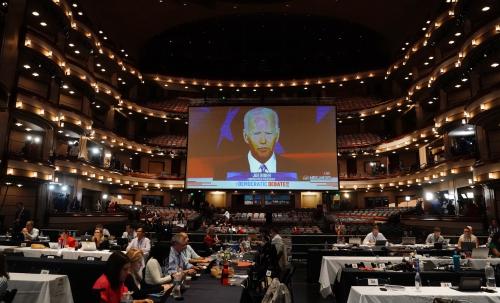
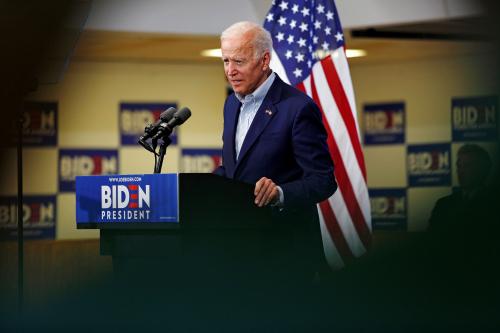
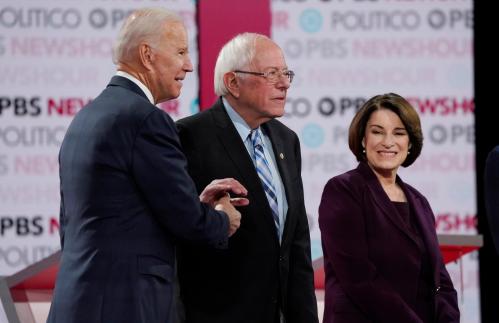
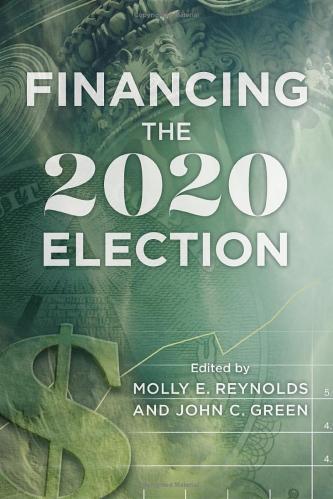
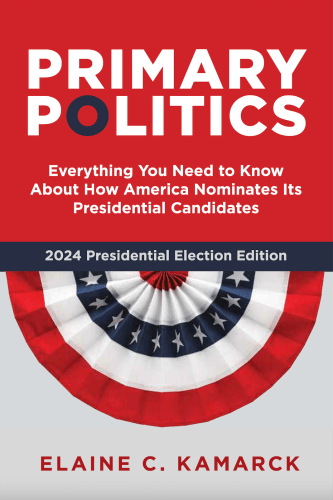
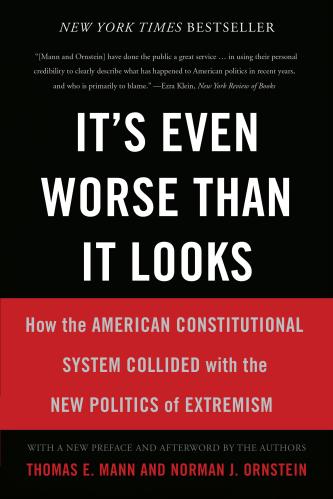




Commentary
The third Democratic debate: Biden vs the rest
September 13, 2019